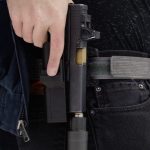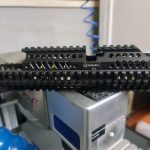Blazer .380 Brass Case: Quality Target Ammo

If you try to look up what the best caliber is for self-defense, you will probably find both of these statements:
- The perfect caliber for self-defense is .380.
- You should never use .380 ammo because it’s junk.
Use it. Don’t use it. It’s great. It’s awful. We have a billion rifle rounds and arguments can be made for each caliber including what it works best for. The same is true for handguns.
There are reasons why people choose .380 and there are reasons why they don’t. Like any other caliber, it just depends on what works best for you. Today I’m going to focus on the Blazer .380 95 Grain FMJ, but I also want to look at why people carry .380 and why training is needed for those who do carry it.
CCI Blazer .380 FMJ Brass Case
Blazer .380 FMJ brass ammo is known for its reliability and overall good quality ammo for training. At just under 1,000 fps, the ballistics are about the norm of any standard 95-grain .380 round. Blazer uses good quality brass and non-corrosive boxer primers. While their quality is excellent for the range, it is very affordable compared to other brands out there. I have been using Blazer ammo for years in multiple calibers and have never had any issues with it. I have also found Blazer ammo is a good choice for long-term storage because of the non-corrosive boxer primers.
It is easy to fall into the trap of buying the best ammo for self-defense and then buying the cheapest stuff out there for range time. The only problem with this is that practice time on the range is one of the most crucial types of training needed to prepare for that self-defense situation we hope never comes. But if it does, training with cheap ammo will cause the gun to recoil differently, may not be as accurate, and may cycle through the gun differently. It is ok to shoot cheap ammo for fun on the range, but it should not substitute serious training for concealed carry.
Why carry a .380?
Yes, it is true, .380 is far less effective than .45, 10mm, .40, or even 9mm. But that does not make it useless. A .45 carries some serious knock-down power. But with that knock-down power comes serious recoil. Larger bullets also mean less ammo or much larger magazines to carry the same amount of ammo. A 9mm has better recoil and is smaller so it makes a great CCW round. In fact, the 9mm is probably the most popular self-defense round today. But there could still be a reason why some want to carry a .380.
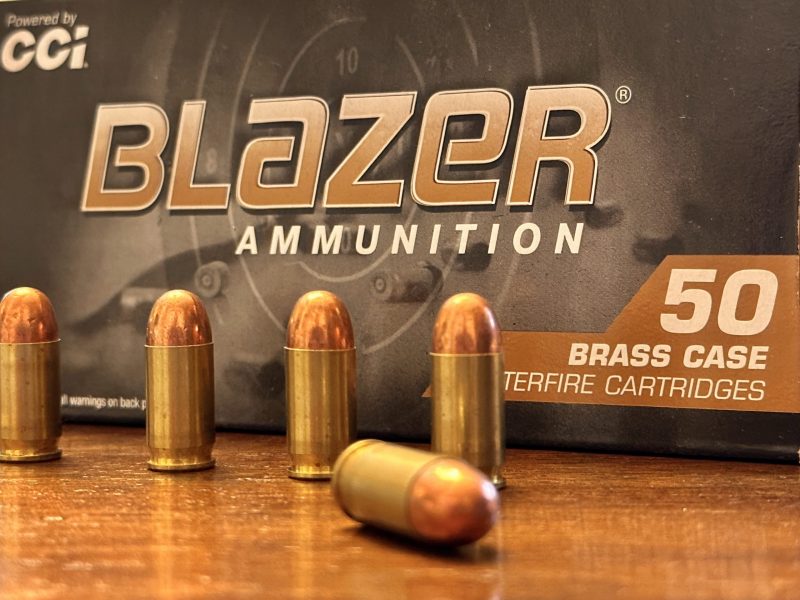
The 1st reason is that a .380 is very compact and allows maximum capacity before you go even smaller like a 32 ACP or .22 caliber. My philosophy has always been to carry the largest handgun that can still be concealed. The size of handgun I can carry changes each day depending on what I am doing and the clothes I can wear. If I’m off duty and it’s 95 degrees outside, it will be harder to conceal a 1911. If it’s cool out and I can wear a jacket, hoodie, or some type of outer shirt that covers more up, a larger gun is possible. But I still find days where I grab my .380 and head out.
When you carry a weapon daily, it can start to feel like a chore at times. There are days that my clothing just won’t conceal a larger gun. If I’m wearing a shirt and jeans that just won’t hide a larger gun, I’m tempted to go without one. But that is not very responsible, so I grab the smallest gun I have and strap it on. After all, that’s better than no gun, right?
Another reason some people carry a .380 is because of the low recoil. If someone has trouble with recoil on smaller guns and a larger framed gun is not an option, a .380 can be a good alternative.
Is a .380 effective?
A .380 is not as effective as a 9mm or larger caliber round. But that does not mean it’s useless in a self-defense incident. Is the risk higher that an attacker would not be stopped as fast? Yes. But it can still be effective, and it can still work. In my years in law enforcement, I have seen people shot with .45 caliber ammo that walked into the hospital without any help. I have also worked cases where a single .380 wound was fatal instantly.
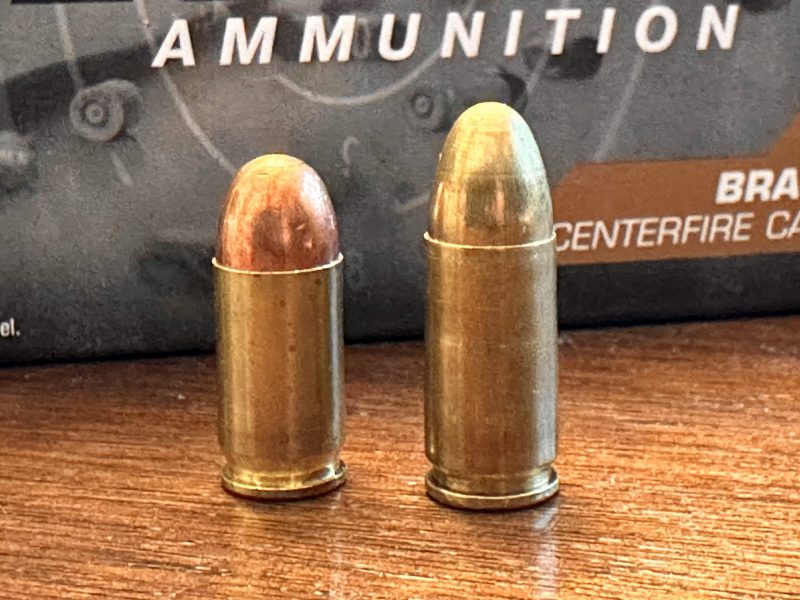
Most self-defense shootings take place at less than 20 feet. This means the likelihood of needing to use a .380 caliber for self-defense is going to be very close. A .380 can be effective when the target is within a few feet and the weapon can fire multiple rounds quickly. This does not mean I prefer a .380 as a daily carry, but I can still draw and fire mine quickly if I do need a very compact gun.
Why should you train with a .380 if you carry it?
I fell into the same category as others and thought if I train with a 9mm, I can handle a .380. After all, a .380 is not as much fun to shoot on the range as a 9mm or some other larger round. Small compact guns are just not comfortable to shoot. But even if you train with a 9mm or larger caliber gun, training is still needed for a .380 if you are going to carry one. The smaller frame of the gun requires more grip strength to control. This is especially true if the compact gun is a larger caliber like .40 or .45.
Every gun and every caliber shoots just a little bit differently. A .380 may not kick very much but regular training should still be done to be efficient with it. Contrary to what people think about the “cute” little guns, a small compact gun can be much harder to shoot quickly and accurately than a full-size gun. I find running drills with my Ruger LCP Max more challenging than running them with a Glock, 1911, or Sig P320. The rule for any weapon should be, if you carry it, you train with it.
On the range with the Blazer .380
When I train with one of my CCW weapons, I like to shoot three kinds of ammo from it. First is self-defense ammo. If I am going to carry ammo for protection, I want to make sure my gun will shoot it without any issues. I know it’s expensive but it’s worth it to buy an extra box the 1st time you train with it. The 2nd type of ammo I use is good-quality FMJ for regular training. When I use the Blazer .380 FMJ in my LCP Max, it is very smooth and has no issues.
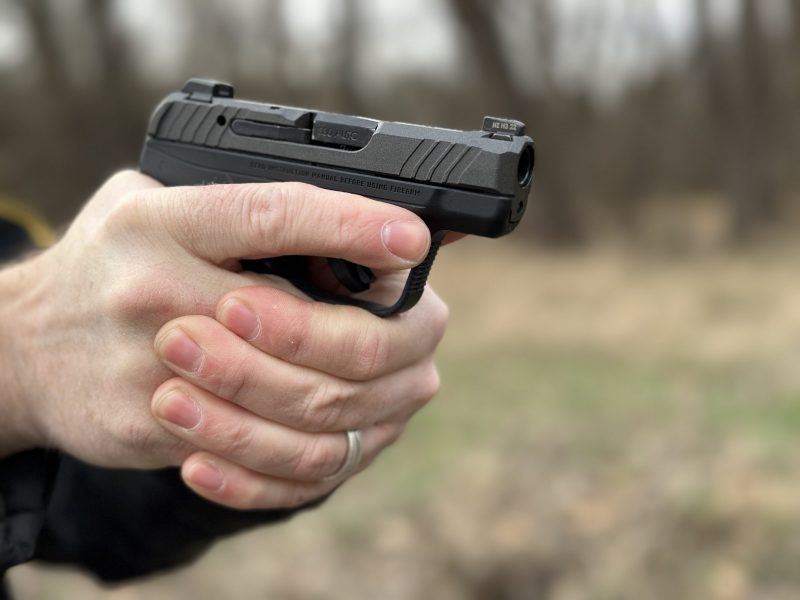
The 3rd type of ammo I shoot from a CCW gun is the cheapest stuff I can find. This is not what I use for quality training, but to see if the gun has limits. Does it jam with the cheap stuff or can it handle cheap ammo too? If it does well, the cheap ammo may be a good choice when you want to plink at pop cans as the sun goes down. Most of my training, however, is with quality target ammo, and the Blazer 95-grain FMJ is a great choice for this.
Summary
Find what works for you and go with it. If a .380 is all you can carry at times, then carry a .380 caliber gun. CCI’s Blazer .380 Brass Case is a great choice for training with your .380 and is an excellent price for the quality of ammo you get. My agency uses Blazer for some of our training events and we have not had any issues.
This .380 target ammo comes in a good quality box with a solid plastic ammo holder that makes it easy to store. It also has good-quality brass casings for those who like to reload and save some money. CCI’s Blazer is a great brand and .380 is a good caliber for those wanting a low recoil small caliber round.

